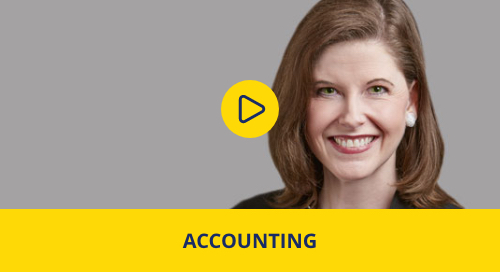how-to-create-messages-that-stick
August 15, 2017
Vicky was excited. I mean extremely excited. A friend of hers had arranged an opportunity for her to attend their company staff conference, where a former Olympic athlete would be speaking. The organization was investing a considerable sum of money for this celebrity to address over 300 staff.
A week after the event, Vicky and I met up. As a professional speaker myself, I was keen to hear about the impact the celebrity had made and the ways his message would help his audience.
"So what was he like Vicky?"
Vicky appeared starry-eyed as she recalled the event.
"He was gorgeous. All the women instantly fell in love with him. In fact, some of the guys probably did too."
"Interesting,’ I replied. ‘But what would you say you took away from his message?"
"Well," continued Vicky, clearly excited as she relived the experience, "if you were patient you could wait around at the end and have your photograph taken with him and his Olympic medal."
"That's brilliant Vicky, but can I ask you this: what was your key takeaway from his presentation?"
Vicky paused before finally replying: "That's a tough one. I can't remember exactly, but I know he was really good."
It got me thinking. How often do we hear a message but very quickly forget it? Sometimes that might be acceptable if the speaker's message was meant solely to entertain. But what if it isn't? What if you have an important message to communicate that you need people to remember?
The problem is we're often so busy focusing on what we're going to say that we don't take time to think about how to say it in a way that people will remember.
The challenge you face as a communicator is not that the attention span of your audience is necessarily short – it's that their attention is constantly being bombarded by messages and distractions screaming ‘listen to me, notice me’. Believing that saying something once in a potentially unengaging way is going to be remembered by people is, I'm afraid, a reflection of either naivety or arrogance, or perhaps even a combination of both.
Advertisers know they need to get your attention and then communicate their message in a way that is memorable. After all, what's the point of an organization investing in advertising if you then can't remember the point of their message? They know that getting your attention is just the start. They then need you to remember their message.
That's crucial for us to remember as communicators.
Ever heard the phrase people won't remember what you said, but they will remember how you made them feel? Personally, I think that could be a cop-out. How about when we communicate with people, our aim is that they'll remember how we made them feel AND what we said?
Here's the deal:
We need to learn how to cover our message in Velcro, rather than coat it with Teflon.
Making his message sticky and memorable was a priority for Steve Jobs. That's why, when he wanted you to remember something, he'd repeat it over and over. Why? Because repetition aids retention. I'll say that again – repetition aids retention. He wasn't bothered if people said ‘Steve, you mentioned that earlier’. He knew that. But he intuitively knew the following:
Your message needs to stick if it's going to be a hit.
Repetition is one way to do that. We'll be exploring lots more ways throughout the book, but let me share one approach I've used to make my message sticky and memorable – using visual and quirky language. And the reason? Well the reality is, the more people hear overused and overfamiliar phrases, the more those words will over time, figuratively speaking, ‘go in one ear and out the other’.
So, for example, in my book SUMO (Shut Up, Move On) I explore a number of SUMO principles. Here's what they could be called if I expressed them in a more familiar way:
1. Take responsibility.
2. Have a positive attitude.
3. Set goals.
However, the language I use to describe each principle is phrased in a less-familiar way:
1. Change your T-shirt.
2. Develop fruity thinking.
3. Ditch Doris Day.
Here's the deal:
The unfamiliar gets our attention. And through repetition, it also gets remembered. Here's another way I've used the above strategy to get remembered:
My name is Paul McGee. I think you'd agree there's nothing particularly memorable about that name. My appearances in the media are occasional at best and, compared to many people operating in the world of motivational speaking, my life story is rather tame.
But my brand name –‘The SUMO Guy’ – gets me remembered. It gets people's attention. It immediately conjures up a visual image and creates interest. Agree? The reality is I don't wear a sumo outfit or prance around on stage dressed in an oversized thong. Which might disappoint some, but probably comes as a relief to many. Either way, my brand name is memorable.
Then, explaining that SUMO is an acronym which can stand for Shut Up, Move On (or sometimes Stop, Understand, Move On) also gets me remembered. It's short and simple (words that have often been used to describe me, in fact). But because it's short and simple, and also different and memorable, it sticks in people's minds.
Now relax. I'm not suggesting you have to come up with some weird or wacky way to communicate your message. I've simply shared a strategy that works for me. You're going to be learning many more, but although the context in which you speak is likely to be vastly different to mine, you might want to start thinking about how you could use less-familiar language to express a familiar idea.
The Point I Want To Stress is This: Having a Great Message is One Thing. Getting it Remembered is Another Entirely.
If you were to focus on one of the ideas we've briefly explored to make your message more sticky and memorable, which would it be?
1. Using repetition more.
2. Using less-familiar language to communicate a familiar idea.
What techniques have you used to drive a message home? Let us know in the comments below.
The above post is an excerpt from How to Speak So People Really Listen: The straight-talking guide to communicating with influence and impact.
Paul McGee is one of the UK’s leading speakers on the subject of change, workplace relationships and motivation. His provocatively titled book SUMO (Shut Up, Move On) became an instant bestseller and his book on Self Confidence reached number one in the WHSmith’s business book chart and remained there for a further 24 weeks. He has appeared on BBC Breakfast television and is a regular contributor on BBC Radio.
Image Credit: Rawpixel.com / Shutterstock











